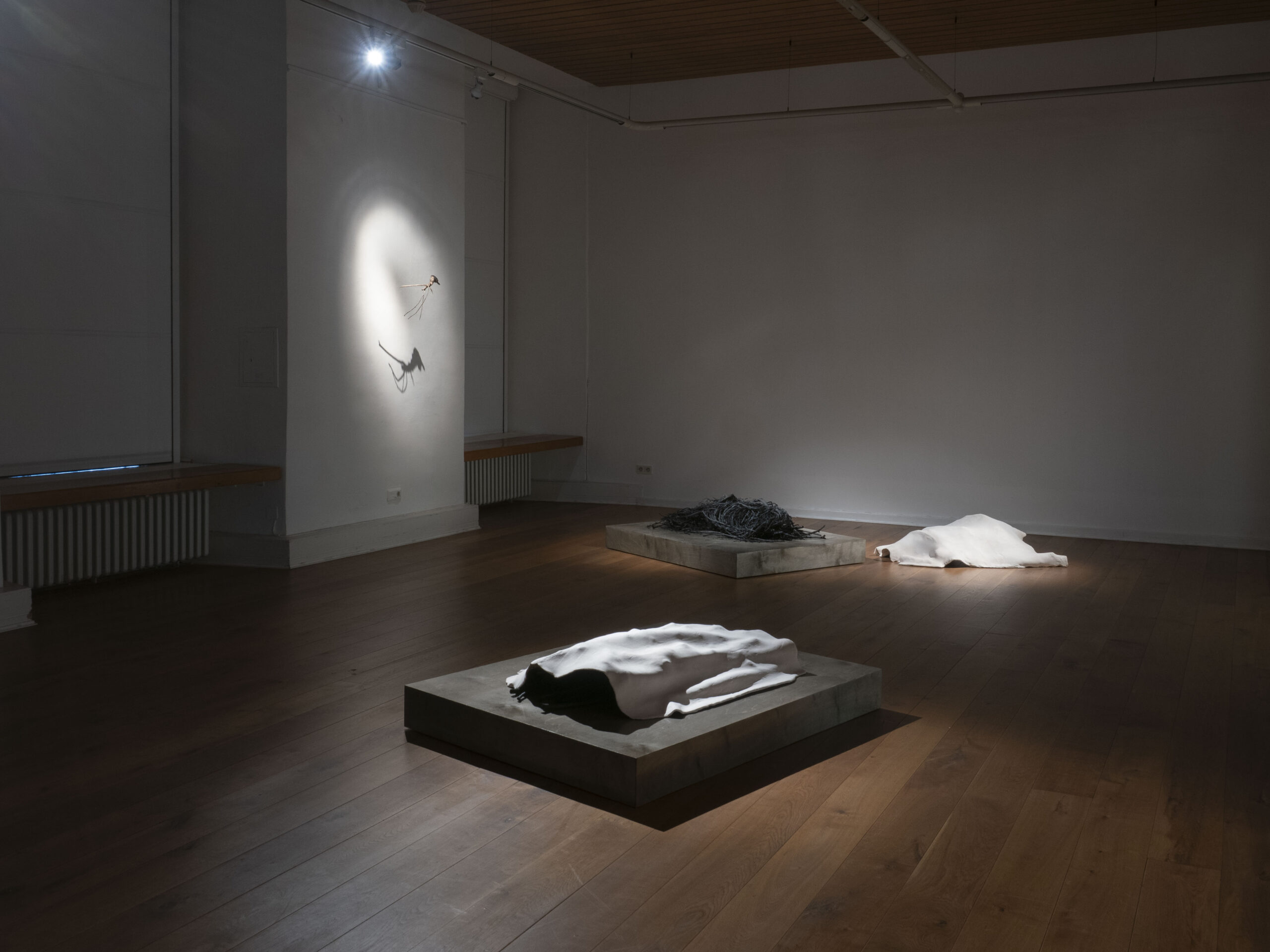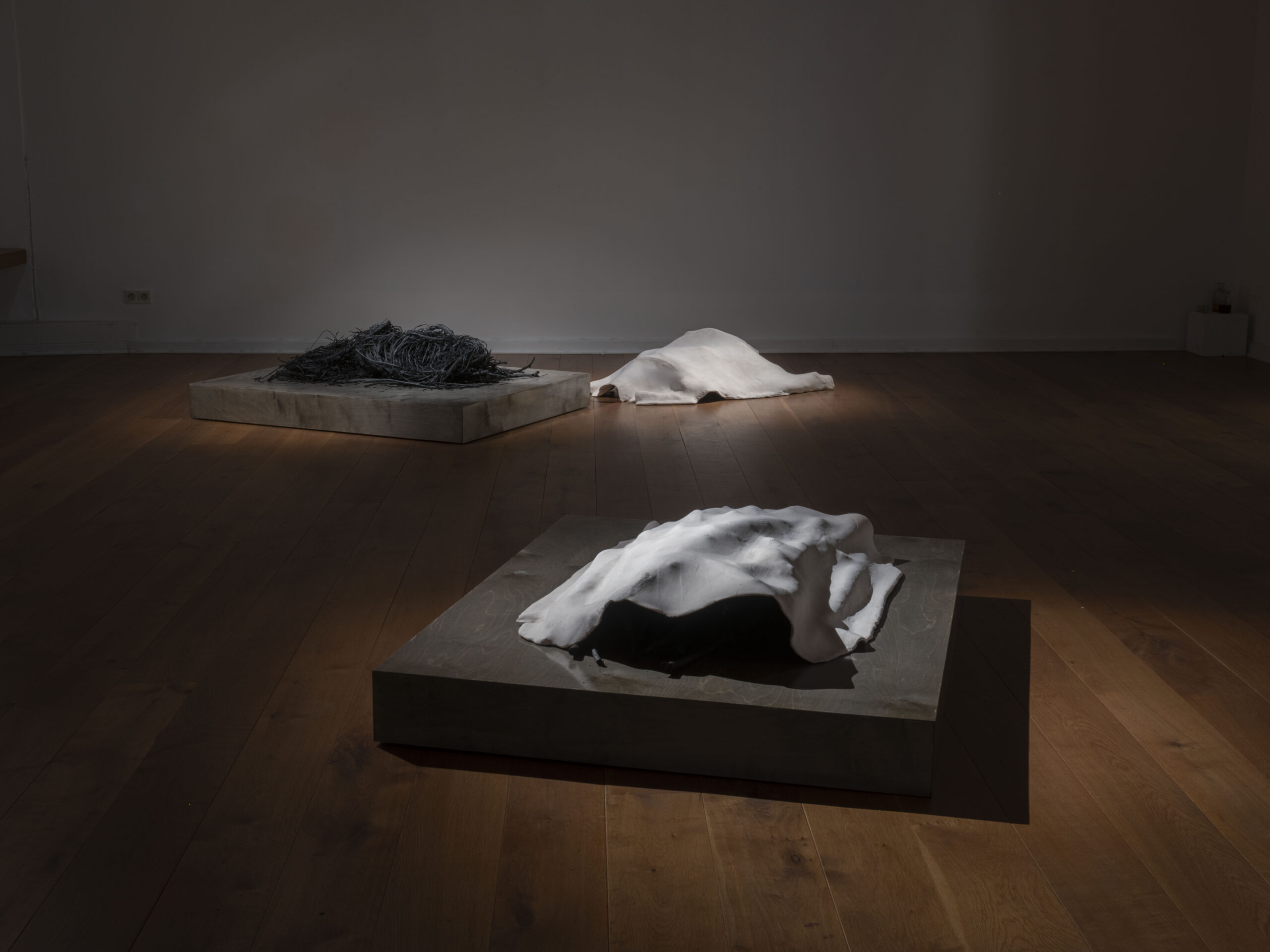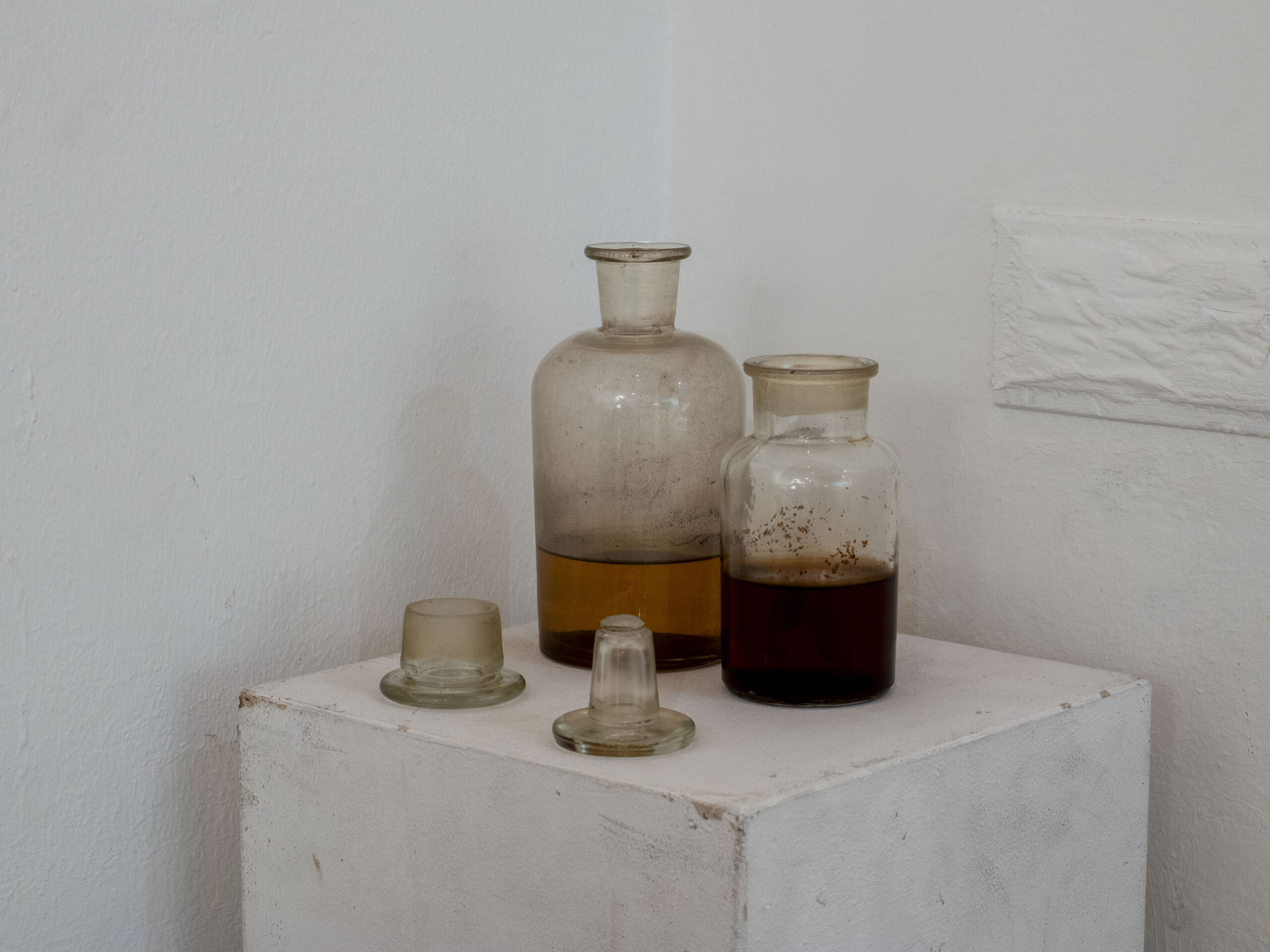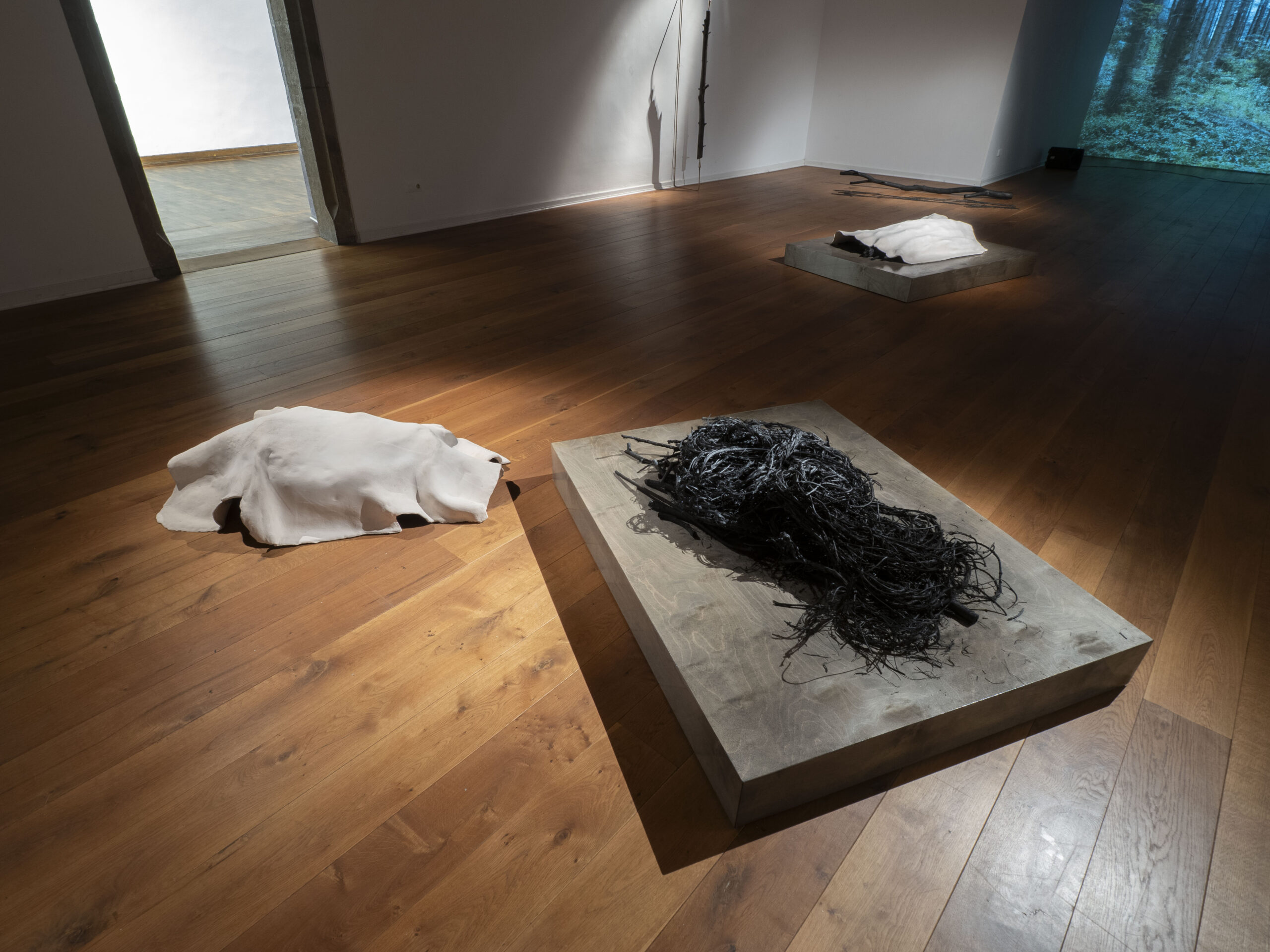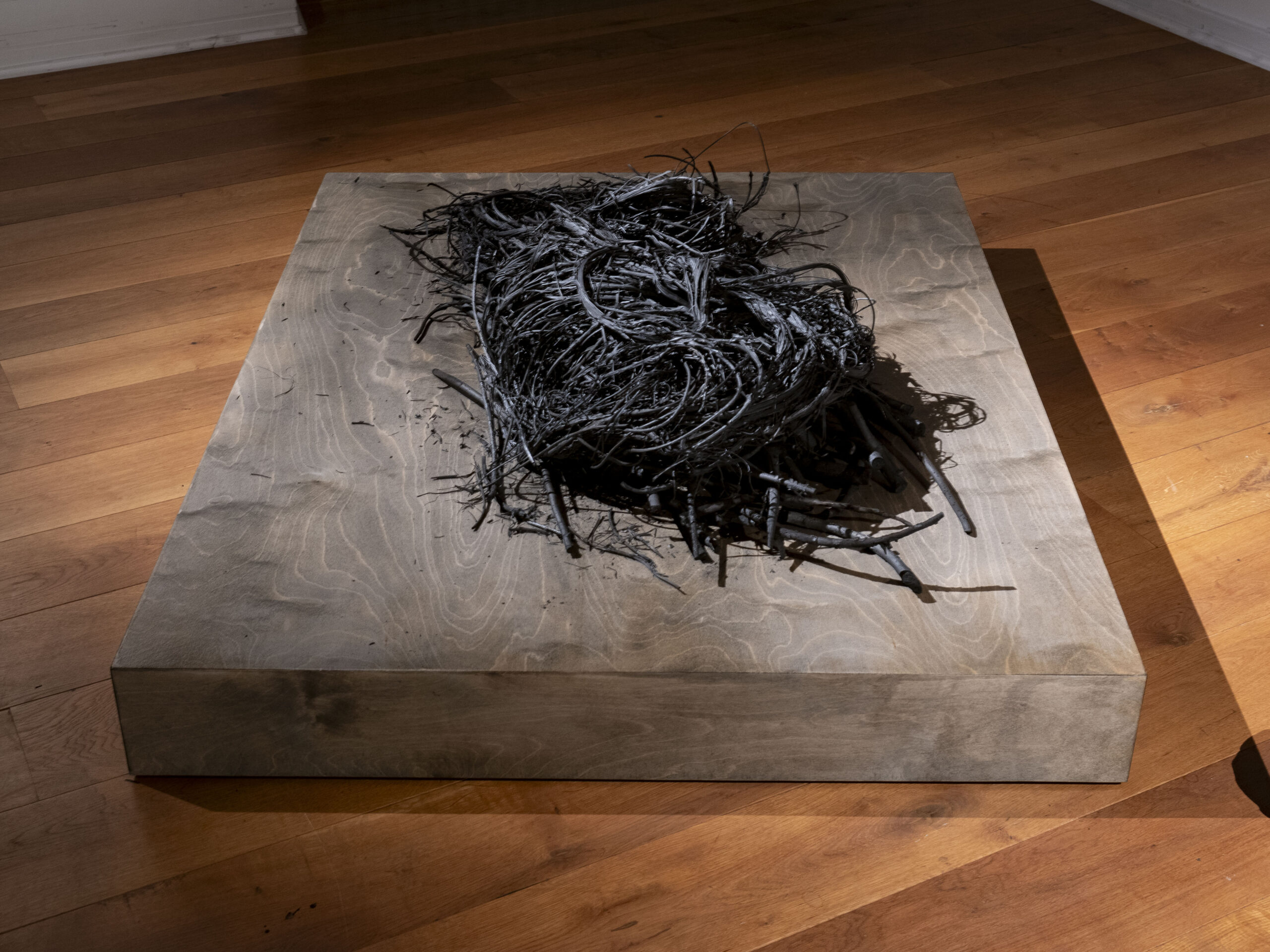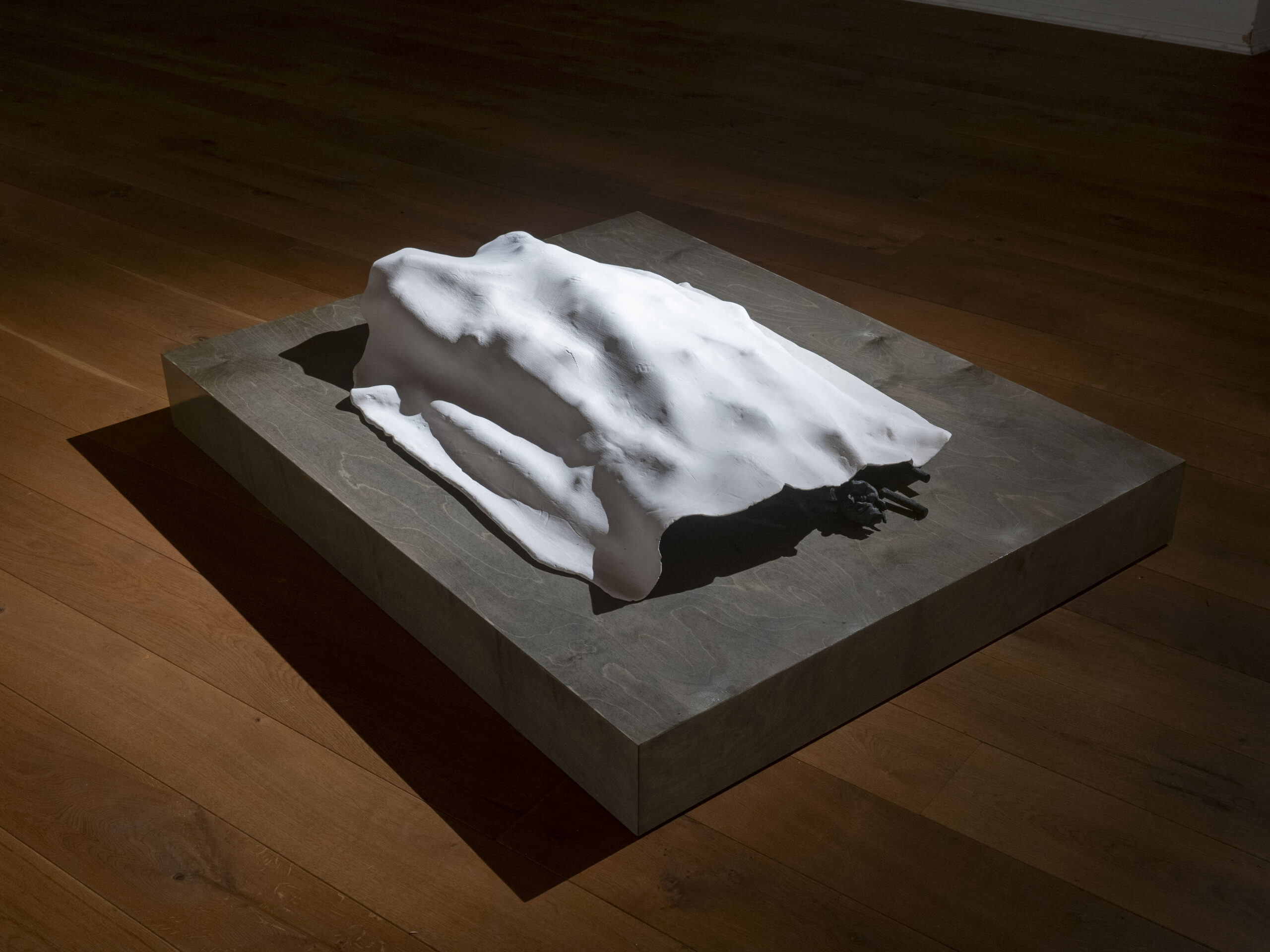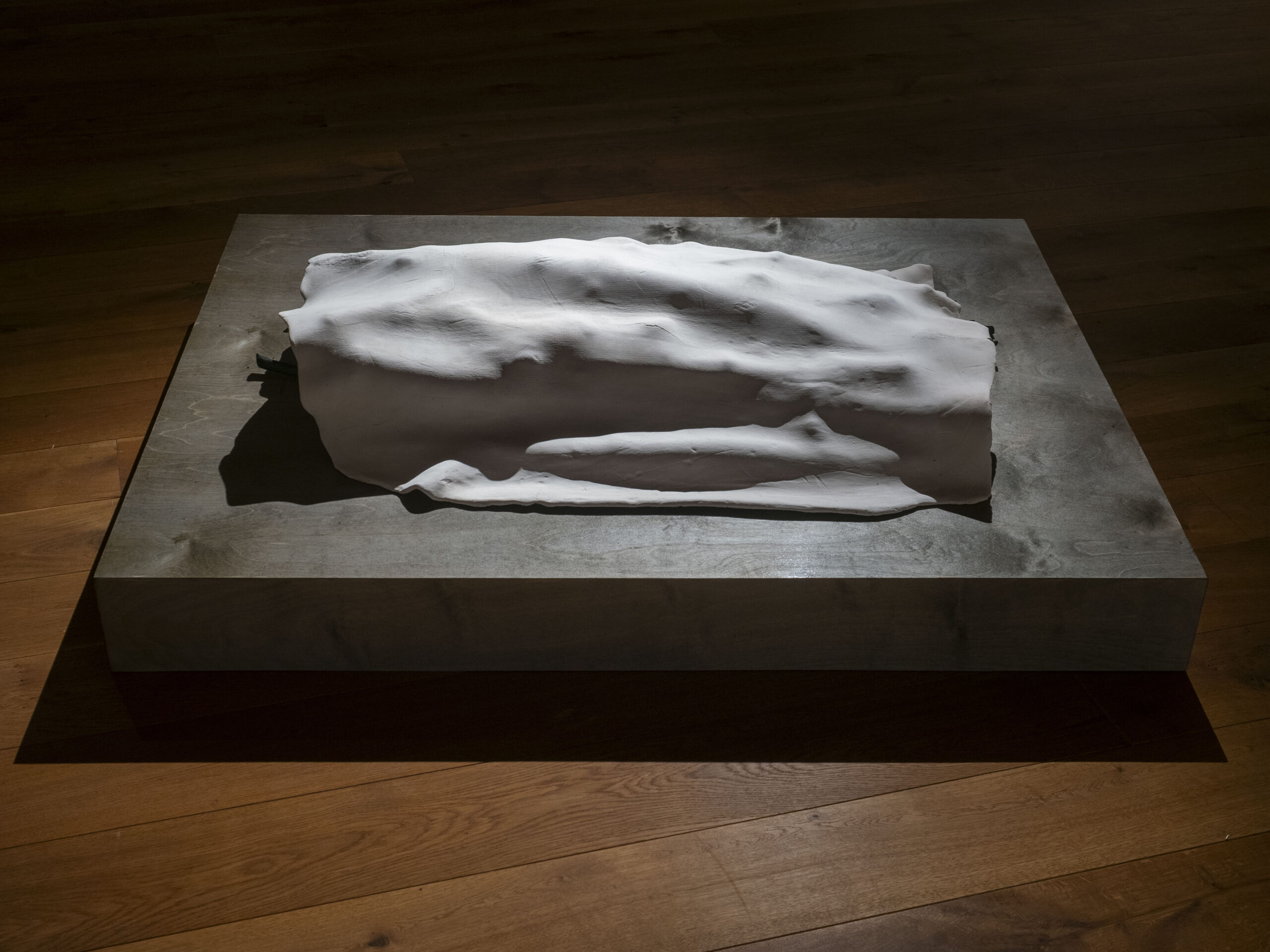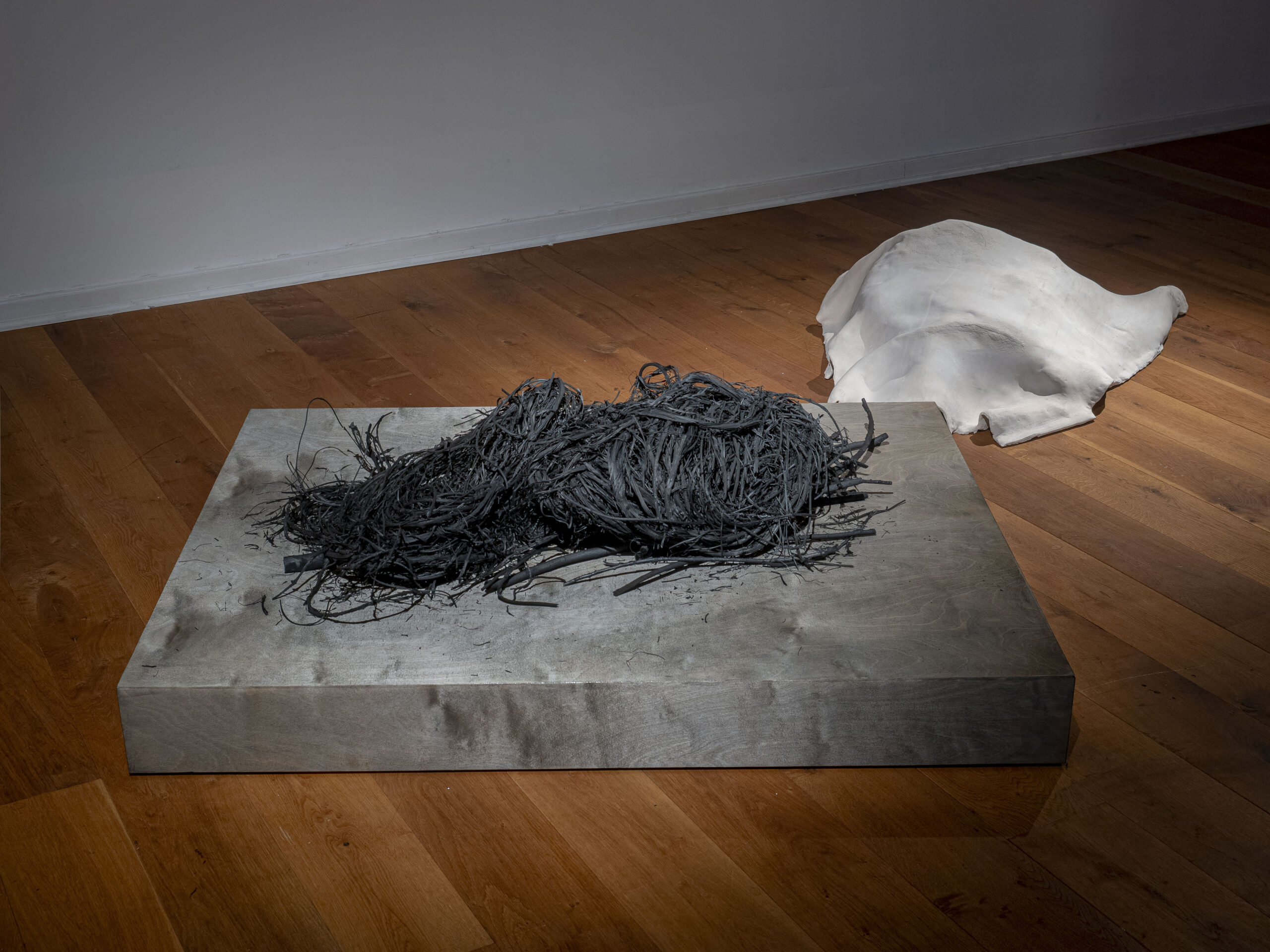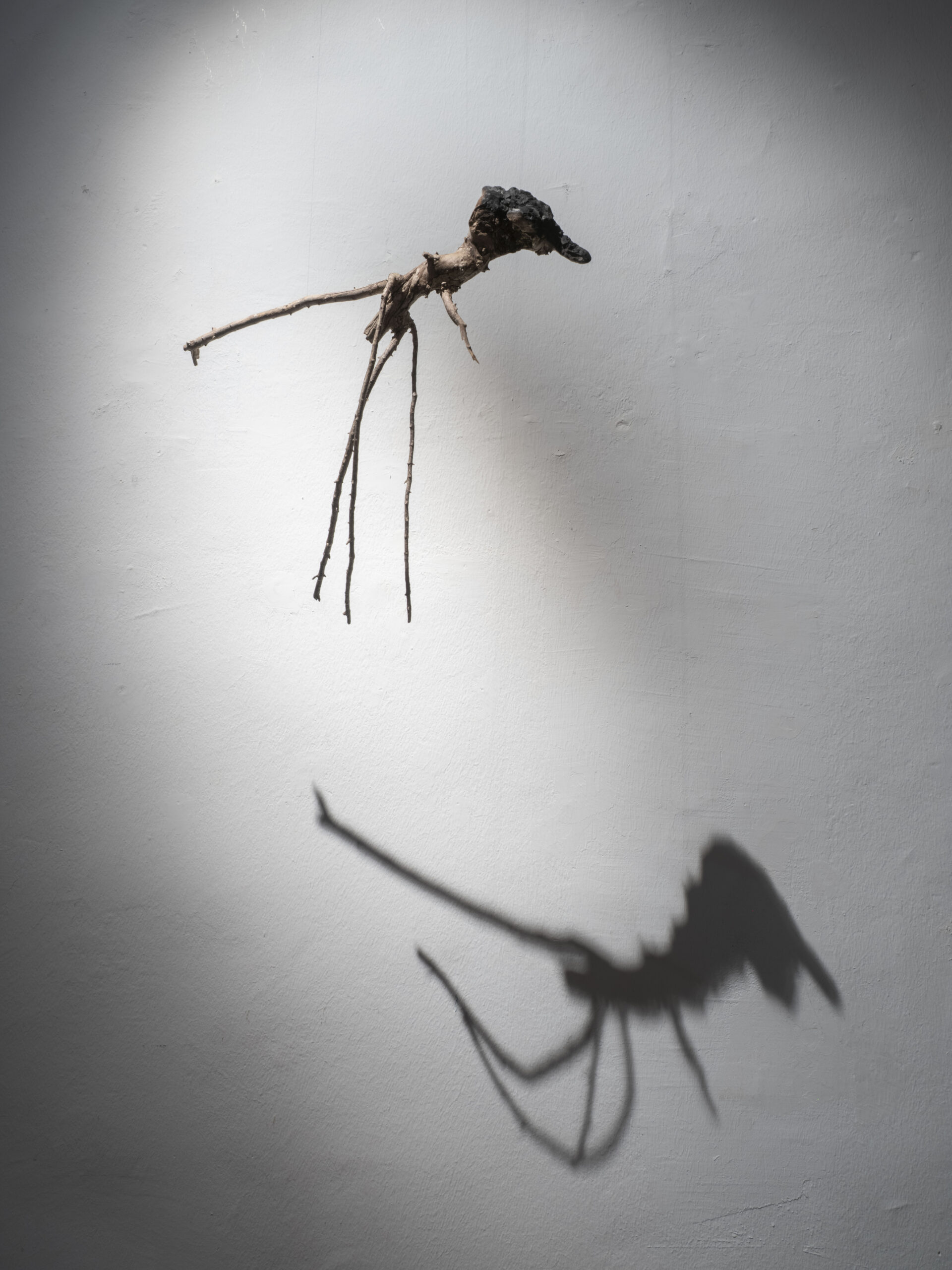Collapse is not a destination, it is a process
TERRA DIASPORA – ACTIVE TERRAIN N°2
Kunstverein Göttingen
June 14 – September 21, 2025
„Sheltered (Nest)“ 2024, ceramic and carbonized wood, each appr. 85 x 30 x 110 cm, Installation with distilled smoke scen
The form emerged through a process in which wet clay was pressed onto wood, imprinting its structure. Both materials were then fired separately — the wood transformed into charcoal, the clay into ceramic — and were later reunited in the installation as paired, altered elements. The piece is accompanied by a distilled smoke scent, deepening the sensory presence of transformation, memory, and material resonance.
This Groupexhibition is curated by Dr. Almut Hüfler and Stephan Klee
Featuring Julius von Bismarck, Julian Charrière, Marjolijn Dijkman, Raphaël Fischer-Dieskau, Andreas Greiner, Robert Gschwantner, Spiros Hadjidjanos, Almut Linde, Ulrike Mohr, Mazenett Quiroga, Marike Schuurman, Raul Walch, and many others.
“TERRA DIASPORA – Active Terrain understands our planet in the Anthropocene as an isolated and endangered biosphere in space with finite resources, where our activities have profound impacts on the basis of our existence.”
In its second year, TERRA DIASPORA presents the central group exhibition Active Terrain N°2 at the Old Town Hall Göttingen, bringing together thirteen artistic positions. The works, realized in various media such as sculpture, photography, drawing, and video, all engage with the discrepancy between the ecological crisis of our planet and how it is perceived by humans. Given the scale and often great distance of human interventions and their consequences over long periods, this crisis can be recognized as an acute danger. The complexity of these processes outpaces the human evolutionary response mechanisms to threats, meaning that necessary countermeasures are repeatedly “postponed” in the face of urgent crises such as wars or economic downturns. As a result, ecological collapse is already underway without humanity responding adequately. As Ugo Bardi, member of the Club of Rome, stated in 2022: “Collapse is not a destination, it is a process.”
The exhibition addresses this phenomenon through a walk-in field of installations that make these developments directly tangible—focusing on the two thematic areas “Processes in the Forest” and “Processes in the Soil.” This is made possible primarily through the close connection of the works to real transformation processes occurring in many globally distributed terrains. The exhibition not only visually and acoustically presents these locations and their changes, but often incorporates the affected, original materials directly in the gallery space, allowing the works to serve as material translations of external geological and industrial processes. Like the mineral flow of an hourglass, the artistic interventions render the dilemma of the capitalist growth paradigm and the implications of our lifestyle immediately and sensually comprehensible: the long-term effects of short-term profitable productions are already relentlessly occurring underground but are not adequately integrated into economic planning and action.
Together, the assembled works form a polyphonic canon of consumption with a real core. The exhibition unfolds as an activated cabinet of curiosities of pressing ecological upheavals of the modern age within a fortified medieval trade guild house.
Quotation: Ugo Bardi in “Limits and Beyond: 50 years on from The Limits to Growth, what did we learn and what’s next?”, 2022
